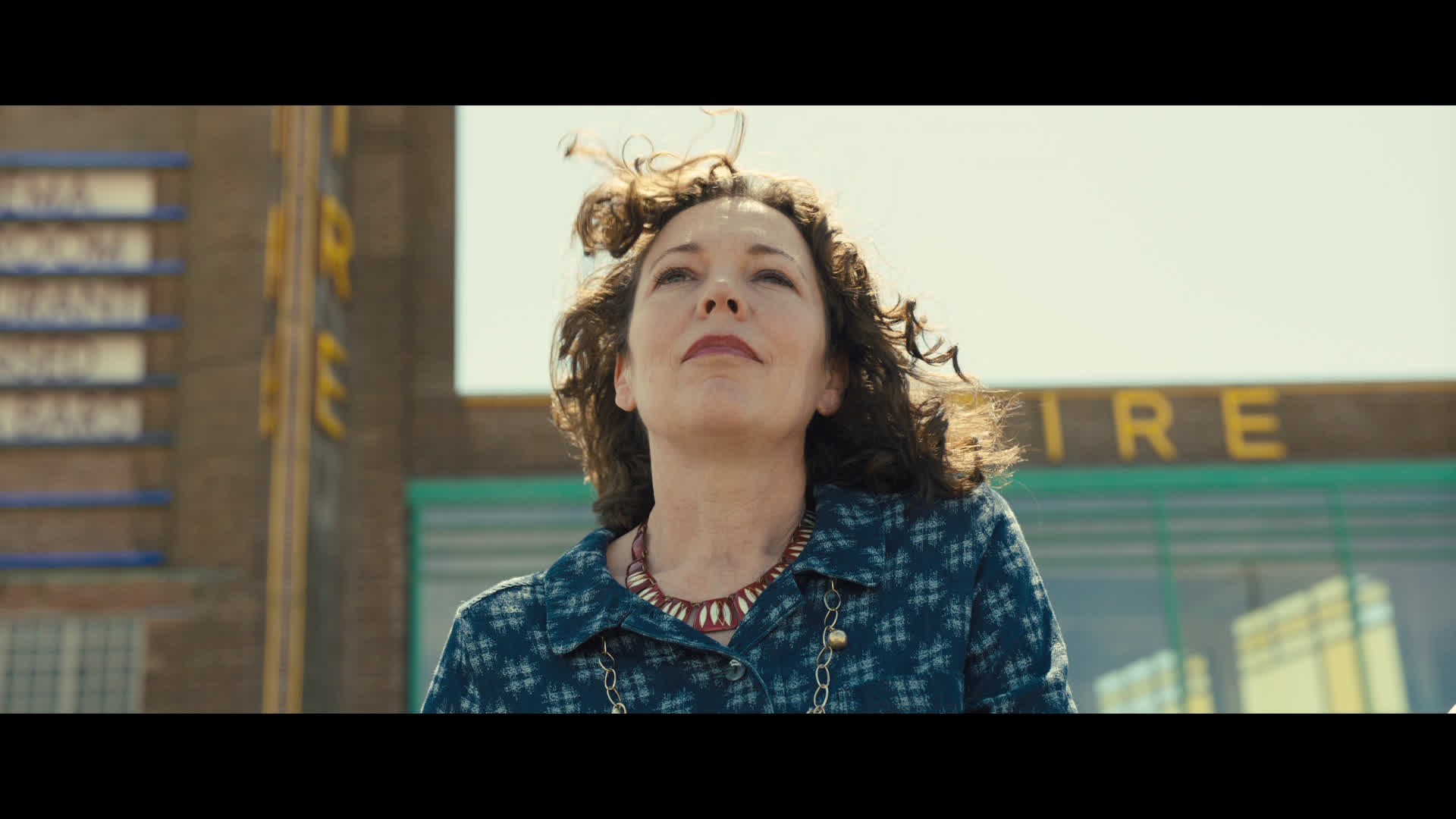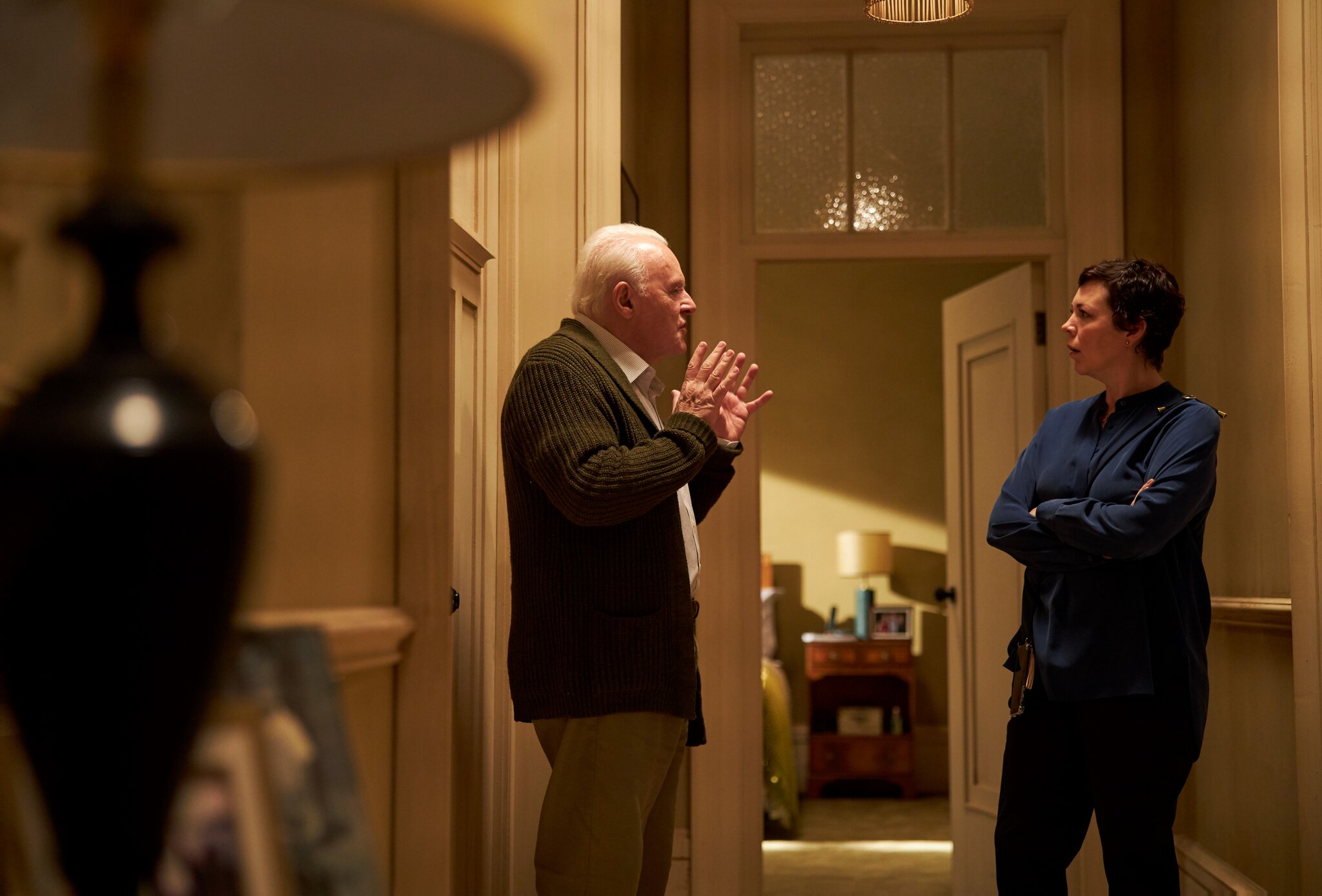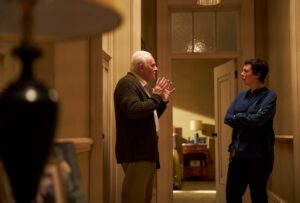Empire of Light
Posted on December 8, 2022 at 5:38 pm
C| Lowest Recommended Age: | Mature High Schooler |
| MPAA Rating: | Rated R for sexual content, language and brief violence |
| Profanity: | Very strong language |
| Alcohol/ Drugs: | Alcohol, smoking, medication |
| Violence/ Scariness: | Racist mob violence |
| Diversity Issues: | A theme of the movie |
| Date Released to Theaters: | December 9, 2022 |

The title refers to the setting, a once-grand movie theater called Empire across from the beach along England’s south coast. It is 1980, near the end of the year.
Hilary (Olivia Colman) is the manager, taking care of just about everything from sweeping up spilled popcorn to placing the boss’s slippers in front of the space heater to matching up the ticket stubs to make sure every customer is accounted for. It also includes sexually servicing the boss, Donald Ellis, who murmurs tender nothings like “You’re so helpful.”
Hilary has recently returned to the theater after a stint in a mental hospital. She takes medication for bipolar disorder and has regular check-ins with a doctor. That may be why she is tamped down, or it just may be English reserve. Or both. She admits to him that she feels a bit numb. Colman, never less than superb, is the best part of the film, showing us how Hilary’s smile and her eyes communicate opposite emotions.
The other staff includes Norman, the projectionist, who is proud of his understanding of optical physics (Toby Jones), Janine, with wild hair and punk-black lipstick (Hannah Onslow), and quiet but observant Neil (Tom Brooke). One day, Ellis introduces a new employee, Stephen (Micheal Ward), the son of an African immigrant, who is a nurse at the local hospital. Hilary is drawn to him, his gentle care for a bird with a broken wing and his good humor. She stops taking her medication and begins to feel less numb. Some feelings are welcome, some not, as when she snaps at Stephen for trying to amuse Janine by imitating an elderly customer. The same goes for an underused Jones, who is stuck with explaining the magic of the stories projected on a beam of light. Hilary’s recognition of the abuse Stephen suffers because he is Black seems like it is from another movie. A better one, as the issue is more about her reaction than about his experience.
The cinematography by all-time great Roger Deakins is enticing and production designer Mark Tildesley, who gives the Empire theater just the right amount of faded glory, especially in the top floor, once additional theaters with a gracious lounge, now abandoned by everyone but pigeons.
It is a joy to see Colman as Hilary. She shows us the pain and isolation Hilary is experiencing and handles the various stages of bipolar disorder without losing sight of the feelings of anger, jealousy, and longing that are about being human, not about being mentally ill. Ward has enormous appeal. But neither can overcome the underwritten characters created by writer/director Sam Mendes. Small moments engage us, especially those with Tanya Moodie as Stephen’s mother and Crystal Clarke as his love interest. but it never comes together. By the time Hilary finally decides to actually watch a movie and not just supervise the operations of the theater, the message is unforgivably heavy-handed, with the selection, a movie about someone who is removed from what is going on around him, just in case we did not get the message. Movies can be magical. They can bring us together. As Roger Ebert liked to say, they can be empathy machines. But not this one.
Parents should know that this film includes brief violence from a racist mob. Characters use strong language and they smoke and drink. Hilary takes (and does not take) psychotropic medication. There are sexual references and explicit situations.
Family discussion: What did Hilary learn about Stephen when he rescued the bird? Why didn’t she watch the movies? What movies feel magical to you?
If you like this, try: “Blinded by the Light,” set in the same era, and “The Fabelmans”



